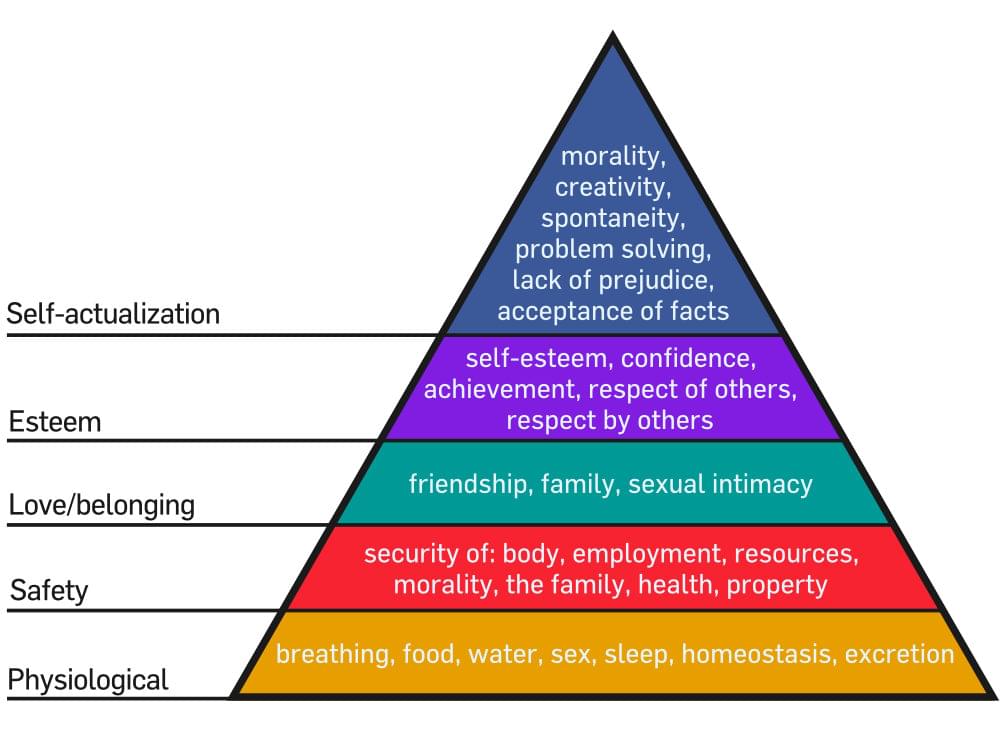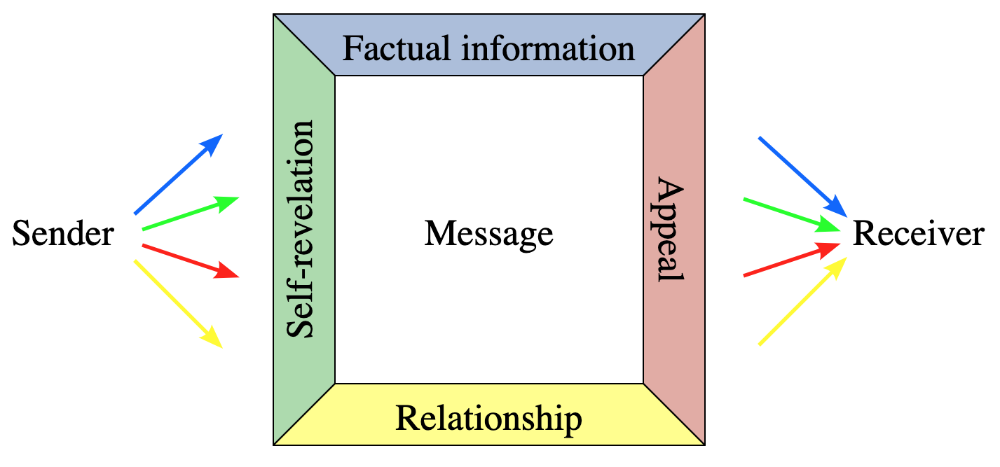- Principle #1: Your Job Violates Your Boundaries
- Principle #2: Your Job Goes Against Your Goals
- Principle #3: Your Job (Consistently) Violates a Healthy Mode of Being
- Principle #4: Your Job Forces You to Choose between Relationship and Safety
- When and How to Quit
- Principles Show You When It’s Time to Quit Your Job
- Frequently Asked Questions (FAQs) About Quitting Your Job
“Jerry wouldn’t let me go to the emergency room.”
Jenny010137 recounted her story on Reddit. She had a major health crisis, but Jerry, her boss, wasn’t buying it.
Jerry wouldn’t let me go to the emergency room after the heavy vaginal bleeding I had been experiencing suddenly got way worse. I went over his head and got permission to go. I called my mom, told her to meet me in the ER. The ER nurse said he’d never seen so much blood. An ER nurse said this. It’s determined I need a couple of blood transfusions and will be admitted.
Jenny’s mom calls Jerry on her behalf.
My mom calls Jerry, who then proceeds to tell her that it’s just stress, and I NEED TO GET BACK TO WORK. At this point, I couldn’t even lift my own head up, but sure, I can take a bus across town and go back to work.
Doctors told Jenny they found a large growth that needed a biopsy.
They found a large growth that needed a biopsy. Jerry kept insisting that it couldn’t be cancer because I’d be tired and losing weight. I had lost eight pounds in a week and went to bed the minute I got home. I was still recovering from the procedure when Jerry called me to let me know I was fired for taking too much time off. Five days later, I was diagnosed with cancer. Fuck you, Jerry. Fuck you.
Think about that for a second.
Jenny is losing blood rapidly. There’s a good chance she’s dying. Her boss can’t be bothered to verify that she’s okay. While she’s in the hospital fighting for her life, he fires her for taking “too much time off.”
This situation is obviously one to walk away from.
But it’s not always so clear cut.
Sometimes you’re in a situation where there are both positive and negative aspects of the job. With situations like these, the decision isn’t always as obvious as we’d like it to be. Walk away from a promising position prematurely and you may burn bridges and destroy any goodwill you’ve built up.
What’s the best way to know?
If you focus on the signs, you may be right, but too much uncertainty means you may handle things in a way that’s less than ideal.
There’s a better way.
Focus your attention on the right set of principles and you’ll have the framework you need to decide when it’s time to quit your job (or not). Let’s take a look at these principles.
Principle #1: Your Job Violates Your Boundaries
Art Markman, professor of psychology at the University of Texas at Austin, shared a story relayed to him by a reader.
My mother suddenly passed away on a Friday evening. On the Sunday my boss showed up to my house with groceries and flowers and suggested that I go into the office on Monday for the quarterly meeting. After all, “this was a pivotal time” for the business.
I didn’t go in the next day because of my overwhelming grief. I later found out that I was to receive an award on that Monday. Was this a career-limiting move, or is my boss not clear on boundaries?
This boss meant well, but his concern was self-serving and not at all in the best interests of his employee. What’s worse, he may not have understood why it was a problem if his employee spoke to him about it later on.
This is why you need boundaries.
Boundaries act as gatekeepers in a variety of professional, emotional, social, physical and situations. Here’s why you need boundaries and why they’re so important:
- They protect you from abusive or toxic behavior (for example, managers or co-workers making inappropriate demands, verbal abuse, inappropriate conversation, or details that are immoral or infringe on your values).
- Boundaries define how others can or should communicate with you.
- Good boundaries protect you from sacrificing your autonomy, freedom of choice, family, identity, integrity or contacts.
- Great boundaries attract more of the people, projects and opportunities you want. When set up appropriately, these boundaries repel the items you don’t want.
How do you set great boundaries?
It’s a simple process. First, determine what you do and don’t want. Next, figure out what your employer wants or doesn’t want.
Sounds simple, right?
Figuring out what you want is really about asking the right question (see above). Figuring out what your employer wants is really about identifying criteria that are documented in some way. That’s important, because it gives you the leverage you need to protect yourself (legally) against any inappropriate behavior.
But setting boundaries is risky.
Consider this common idea: Tell your boss No and you could get fired (or worse). If developers are smart, they’ll avoid biting the hand that feeds them.
This rationale is trash.
If you set a boundary, it will be tested. Those around you — your manager, co-workers, other developers — will attempt to back you into a corner. You’re going to have to find appropriate ways to rise to the challenge and enforce your boundaries.
Why go to the trouble? Because boundaries limit the damage from the other four principles discussed in this article. If you don’t have strong boundaries, you’ll face the problems discussed here. It doesn’t matter if you’re employed or you own your own business.
If you have poor boundaries, you won’t be able to achieve your goals.
Principle #2: Your Job Goes Against Your Goals
Reddit user YellowRoses had goals until their boss torpedoed those goals.
How do you deal with feeling disrespected by your boss? from r/careerguidance
They were promised a promotion. They negotiated with their boss and earned a verbal agreement regarding their promotion, only for said promotion to be denied with an “Oh, that’s not happening now.” No explanation or attempts at justifying the rescinded promise.
What if your employer isn’t aware of your goals? Still doesn’t matter. If you have a specific goal in mind, you’re responsible for that goal. Not your co-workers, employer, or family members. Are you pushing for the director’s position that’s opened up? Prefer to stay in your current role but receive the same pay as managers? It’s on you.
This seems obvious, until you realize most people wait to be chosen. They wait for someone to approve of their audition, accept them, recruit them, promote them, extend a helping hand, etc. Which goes nowhere fast.
To be clear, it’s generally a good idea to discuss your goals with your employer, provided that you’re in a good place to do so. If your employer laughs at you, mocks your goal, or decides they’re unwilling to help you meet said goals, it’s on you to make it happen.
Principle #3: Your Job (Consistently) Violates a Healthy Mode of Being
There are three modes of being in the world:
- Tyrant: You use force, power, leverage, pressure or blackmail to make people do what you want them to do. This approach is akin to social Darwinism. You assert your will over others. It’s effective in the short term, but success comes at a significant cost.
- Slave: You acquiesce to tyrants. You roll over, run or avoid them. Whenever you meet a tyrant you accept their bullying or coercion so you can have peace. You’re agreeable to a fault and focused on avoiding conflict at all costs.
- Negotiator: You understand that there’s a certain amount of giving and take that happens in healthy relationships. You work towards your goals, but you also do your best to help others achieve their goals as well. As a negotiator you understand that others have options, that they don’t need to give you what you want. You see that serving others means you serve yourself.
When it comes to relationships, negotiation is a healthier approach. Negotiation is, unfortunately, an uncommon approach to the workplace.
Here are some examples of tyranny, slavery and negotiation in the workplace.
Tyranny
- Your boss refuses to allow you to go to the hospital to take care of your health.
- You’re not allowed to leave work to handle a family emergency.
- Family holidays like birthdays, anniversaries or vacations aren’t respected.
- Your boss calls you on vacation continually.
- Co-workers bully you because you work harder, outperform them or refuse to do what they do.
Slavery
- You stay late on your anniversary because your boss refuses to give you time off.
- You cancel your weekend plans when your boss implies that you may not have a job if you don’t work over the weekend.
- You’re forced to train your replacement before you’re laid off
- You’re routinely bullied into doing work you know will harm your company, and you’re blamed for the results afterward.
Negotiating
- You and your employer discuss your goals candidly and discuss a plan of action once performance standards are met.
- You attempt to stay late to show your commitment, but your boss requests that you go home to your family. You both negotiate a compromise.
- You want a sizable raise, so you and your boss discuss the specifics needed for that to happen.
- Your boss focuses on results rather than “face time” or favors. He checks in periodically to ensure that you have the help and support you need.
See the difference?
This is the problem. Many bad managers seek to enslave their employees when they should be working to empower them. Negotiation is the only way people can build healthy, long-lasting relationships with each other. If you’re consistently forced into the slave or tyrant role, it’s time to quit your job.
Principle #4: Your Job Forces You to Choose between Relationship and Safety
Remember Maslow’s hierarchy of needs?
Abraham Maslow discussed this in his paper A Theory of Human Motivation. He stated that there were five categories of needs that direct motivation and drive human behavior.
These are all important.
They’re the cornerstones of growth and development. However, many employers view these as flexible or optional. Many managers attempt to force developers to prioritize one need over another:
- promotion or career growth vs work/life balance
- keeping your job vs maintaining important familial or personal relationships
- ignoring important familial or personal milestones (such as an anniversary) so you can work late
- telling the kind but unpleasant truth to your boss (and getting blacklisted) vs being quiet and keeping your job
- achievement, status or success if you tow the company line or appease your manager
- demanding that you behave immorally while also implying that you’ll lose your job if you don’t do as they say
- keeping managers happy (requiring that you ignore the problems affecting the organization)
- sacrificing personal relationships for professional gain.
This list isn’t comprehensive.
But it does give you an idea of the struggles I’m talking about. If any issues impact your relationships or role in the company, discuss them. Do it ahead of time (or as they appear).
What if you can’t?
What if you’re already in a situation where you’re routinely forced into this situation? You’ll have to make a choice — not between work or relationships, but over whether you’re with the right company. If you stay, you’ll be asked (forced) to make a choice, but that comes with a degree of certainty.
If you choose to leave, you’re free from a toxic environment, but you’re faced with a large amount of uncertainty.
Unpleasant on both sides.
Principle #5: Your Job Erodes Your Status, Dignity or Self-respect
Reddit user Kineticwizzy, an autistic employee, reached out to managers at his job. He wanted to know what he’d need to do to achieve success in his current role.
So my boss at work laughed at me from r/aspergers
Did you catch management’s response to his question?
“You aren’t in a wheelchair.“
This is a gross thing to say. That said, it’s clear from Kineticwizzy’s response that they’re not sure about the specifics behind their manager’s poor response. There’s a whole lot to unpack here, so we’ll pick a few items to focus on.
We’ll use the Four Ears model.
The Four Ears model is a communication model by Friedemann Schulz von Thun. According to his model, every message has four facets.
These four layers are as follows:
- Fact: this layer communicates raw data, facts and statements.
- Self-revealing: this layer reveals information about the speaker/sender
- Relationship: this layer indicates how the speaker feels about their relationship with the recipient
- Appeal: this layer identifies what the speaker wants from the recipient
Here’s the thing about the four ears: it isn’t optional. If you’re communicating, you’re using the four ears. Here’s an example of the four ears model in action.
Sender
- Factual level: There is something green.
- Self-revealing layer: I don’t know what it is.
- Relationship layer: You should know what it is.
- Appeal layer: Tell me what it is!
Receiver
- Factual level:: There is something green.
- Self-revealing layer:: You do not know what the green item is, and that makes you feel uncomfortable.
- Relationship layer:: You think my cooking is questionable.
- Appeal layer:: I should only cook what you know in the future!
See the issue?
So much communication is implicit and unspoken. Here’s another significant part of the communication between sender and receiver.
Misunderstanding is the default.
This is why it’s actually important to tell the whole story, to communicate fully with those around you. Their mind needs something to latch on to. If you don’t tell others what you mean, they’ll decide that for themselves. This means misunderstanding is inevitable if you fail to communicate fully.
Let’s use the four ears to analyze Kineticwizzy’s story.
First, their request.
“I’d be interested in talking to HR about being successful in their workplace because I’m diagnosed with ASD and would like to do the best job possible.”
Their manager laughs and responds with: “You aren’t in a wheelchair.”
Here’s the message Kineticwizzy receives:
- Factual level: You’re not in a wheelchair
- Self-revealing layer: I don’t think you’re “disabled”
- Relationship layer: You have to work harder and apply yourself
- Appeal layer: Don’t make a big deal about your “disability”; work harder.
The manager may have had the best of intentions, but their employee doesn’t know that. They didn’t provide meaning, so Kineticwizzy filled in the blanks automatically, eroding the relationship in the process. This company loses a valuable employee as a result of a misunderstanding.
When and How to Quit
These principles tell you when to quit, but not how. That’s a problem.
If your employer has treated you badly, it’s tempting to burn the bridge — to stick it to your employer on the way out the door.
Don’t do it.
Quit your job the wrong way, and you burn bridges unnecessarily, sometimes in a way that comes back to haunt you later. If you’re going to quit, it’s a good idea to preserve relationships, even if you can’t see yourself working with your former employer ever again.
Relationships are vital.
Success is more about who you know than it is about what you know or what you can do. Okay, then, how do you quit so you avoid burning your bridges?
You take care of your employer.
Prepare them for the transition. Get everything ready for those who come after you. Make the transition as easy and as painless as possible. Give your soon-to-be former employer the excellent care, guidance and protection they need.
The care, guidance and protection they don’t deserve.
What if you want to burn the bridge? What if you want to make your employer pay for the horrible way they’ve treated you? There’s really only one time to burn the bridge.
Distance yourself from their poor behavior.
This is the time to burn the bridge. If your former organization, leadership or manager is known for immoral or inappropriate behavior, you burn the bridge by denouncing the actions or behavior in question. Think long and hard about burning people personally.
If you make it personal, you’ve earned yourself an enemy.
Here’s an example.
Let’s say you’re in a job interview and you’re asked about a former manager — the same abusive loudmouth you’ve tolerated for a year and a half. Focus on the actions or behavior, like this:
That kind of behavior is totally inappropriate. It’s definitely not how hard-working employees deserve to be treated.
See what I did there?
There’s no criticism directed at your former manager directly. No dirty secrets or gossip. No slander. No contempt is shown for your former boss. This kind of response passes the test.
What test?
HR’s how you sell me is how you’ll serve me test. If you’re willing to gossip about your former employer behind their back, share private secrets or slander them, you’re not trustworthy. This kind of talk makes it harder for you to get a job somewhere else.
Praise by name, criticize by category.
It’s a cultural norm that enables you to walk away without putting your foot in your mouth.
Principles Show You When It’s Time to Quit Your Job
There are often positive and negative aspects to a job. With situations like these, the decision to leave isn’t always as clear cut as we’d like it to be. If you walk away from a promising position prematurely, you may burn bridges and/or hamper your career.
If you stay in a toxic situation, you hurt your career in the long term.
As we’ve seen, there’s a better way.
Focus your attention on the right set of principles and you’ll have the framework you need to decide when it’s time to quit your job (or not). You’ll know which fights are most important. You’ll have the framework you need to determine when to stay and when to leave — no ER visit necessary.
Frequently Asked Questions (FAQs) About Quitting Your Job
What are the signs that I should quit my job?
There are several signs that it might be time to quit your job. These include feeling unfulfilled or unhappy at work, not seeing any room for growth or advancement, having a toxic work environment, or experiencing physical or mental health issues due to stress at work. If you’re constantly feeling stressed, unappreciated, or undervalued, it might be time to consider other job opportunities.
How can I quit my job professionally?
It’s important to quit your job professionally to maintain good relationships and references for future employment. This includes having a private, face-to-face conversation with your boss, providing a written resignation letter, giving at least two weeks’ notice, and offering to help with the transition process.
What should I consider before quitting my job?
Before quitting your job, consider your financial situation, your career goals, and the job market. Make sure you have a plan in place for your next steps, whether that’s another job, going back to school, or starting your own business. It’s also important to consider the impact on your health insurance and retirement plans.
How can I handle negative feelings towards my boss?
Negative feelings towards your boss can be challenging to handle. It’s important to communicate your concerns professionally and constructively. If the issues persist, consider seeking advice from HR or a trusted mentor. Remember, it’s okay to leave a job if the environment is toxic or detrimental to your wellbeing.
How can I manage sexual feelings towards my boss?
It’s crucial to maintain professional boundaries at work. If you’re experiencing sexual feelings towards your boss, it might be helpful to seek advice from a trusted friend, mentor, or therapist. Remember, acting on these feelings can lead to serious consequences, including job loss and damage to your professional reputation.
How can I tell my boss I’m unhappy at work?
If you’re unhappy at work, it’s important to communicate this to your boss. Prepare for the conversation by identifying specific issues and potential solutions. Approach the conversation professionally and constructively, focusing on how changes could improve your performance and job satisfaction.
What are the potential consequences of quitting my job?
Quitting your job can have several consequences, including financial instability, gaps in your resume, and potential difficulties finding a new job. However, staying in a job where you’re unhappy or unfulfilled can also have negative impacts on your mental and physical health.
How can I cope with job dissatisfaction?
Coping with job dissatisfaction can involve seeking support from colleagues, friends, or a therapist, finding ways to make your work more fulfilling, or considering a career change. It’s important to prioritize your wellbeing and not to stay in a job where you’re consistently unhappy.
How can I prepare for a job transition?
Preparing for a job transition involves updating your resume and LinkedIn profile, networking, researching potential employers, and practicing your interview skills. It’s also important to consider your career goals and what you want in your next job.
How can I maintain a positive attitude while looking for a new job?
Maintaining a positive attitude while job hunting can be challenging, but it’s important for your mental health and success. Try to stay focused on your goals, celebrate small victories, practice self-care, and seek support from friends, family, or a career coach.
 Andrew McDermott
Andrew McDermottAndrew McDermott is the co-founder of HooktoWin and the co-author of Hook: Why Websites Fail to Make Money. He shows developers and designers how to attract and win new customers.







